by angela@diggingbliss | Jan 17, 2007 | grasscycling, habitat, integrated pest management, ipm, organic gardening, pesticides, recycling, river-friendly landscaping, stormwater
 There’s an excellent new guide available from the Sacramento Stormwater Quality Partnership teaching river-friendly landscape practices. River-Friendly Landscape Guidelines goes beyond urging water efficiency by incorporating the following objectives:
There’s an excellent new guide available from the Sacramento Stormwater Quality Partnership teaching river-friendly landscape practices. River-Friendly Landscape Guidelines goes beyond urging water efficiency by incorporating the following objectives:
Landscaping in harmony with the natural conditions of the Sacramento River watershed.
— Reducing waste and recycling materials.
— Nurturing healthy soils while reducing fertilizer use.
— Conserving water, energy and topsoil.
— Using integrated pest management to minimize chemical use.
— Reducing stormwater runoff.
— Creating wildlife habitat.
The guide includes river-friendly checklists, plant lists, photos, diagrams, quotes from local environmental and landscape leaders, and a wealth of printed and online resources. There’s even a guide for hiring a river-friendly landscaper. Don’t be dissuaded by the “… for the Landscape Professional” part of the title. If you do your own landscaping and landscape maintenance, this guide’s for you. If you don’t… make sure your landscaper has a copy or visits the website.
If you want your garden to become a healthy refuge for people and wildlife while reducing waste and eliminating pollutants, River-Friendly Landscape Guidelines will show you the steps you need to take.
Click HERE to order your free copy of River-Friendly Landscape Guidelines and Choosing a Landscape Professional.
by angela@diggingbliss | Jan 16, 2007 | Uncategorized
Huge crop loss in state freeze
Citrus, avocados, strawberries are hit hard by cold snap in south state, San Joaquin Valley.
By Deb Kollars – Bee Staff Writer
Last Updated 12:43 am PST Tuesday, January 16, 2007Story appeared in MAIN NEWS section, Page A1
California’s $1.3 billion citrus industry is facing massive losses after three nights of freezing temperatures up and down the state.
“The growers know there is damage, and they expect it to be significant,” said Dave Kranz, manager of media services for the California Farm Bureau Federation.
As much as 70 percent of the state’s orange crop has been destroyed, according to state officials and farmers.
Read more…
by angela@diggingbliss | Jan 12, 2007 | Uncategorized

I had an opportunity for an overnight trip to Santa Cruz and Capitola this week. Made sure to stop at the UC Santa Cruz Arboretum, since I’d never been there. It was mid day, windy and winter, but I still managed to snap a few pics. I’d like to go back in Spring/Summer. The cute gift shop sells succulents and other plants and garden accessories. Didn’t have time to shop, but … Aaa’ll be back.

 Peering into the greenhouse
Peering into the greenhouse
 Succulent heaven…
Succulent heaven…
 Aloe arborescens
Aloe arborescens
 Plaques and plants for sale near the gift shop
Plaques and plants for sale near the gift shop



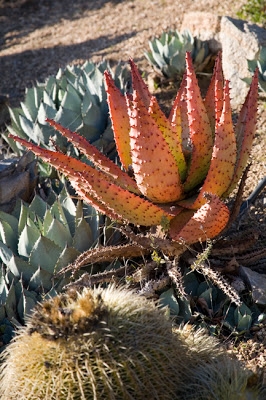
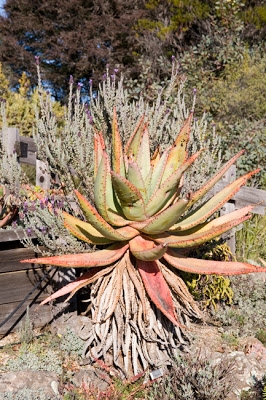
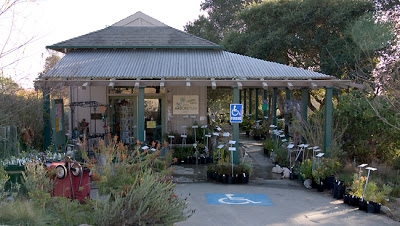 The gift shop
The gift shop
 100 buckaroonies! I need to go into the succulent planter business!
100 buckaroonies! I need to go into the succulent planter business!

 Free plants! How cool is that?
Free plants! How cool is that?


 This looks to be some sort of a propagation area near the offices.
This looks to be some sort of a propagation area near the offices.

 Grevillea ‘Superb’ or ‘Mason’s Hybrid’
Grevillea ‘Superb’ or ‘Mason’s Hybrid’
 Banksia ericifolia
Banksia ericifolia
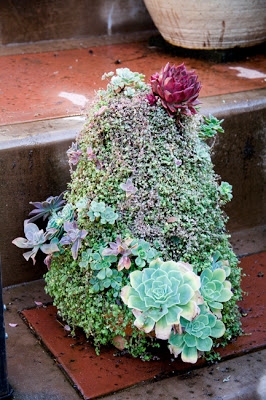
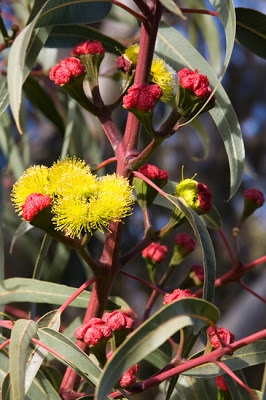 Eucalyptus erythrocorys
Eucalyptus erythrocorys
 Dryandra
Dryandra
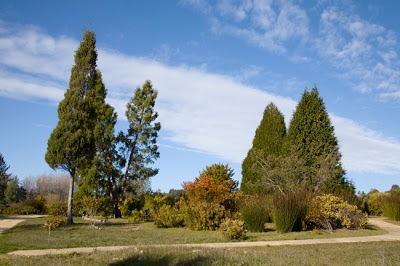
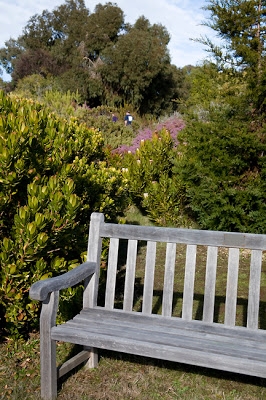
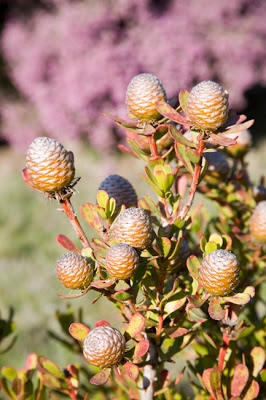 Leucadendron
Leucadendron
 Isopogon cuneatus
Isopogon cuneatus
by angela@diggingbliss | Jan 11, 2007 | Uncategorized
I don’t live in Sacramento city proper, but used to, have friends and family who do, and very much want to help preserve their right to grow whatever plants they please, be they edible or ornamental.
A friend just forwarded this:
“… the issue regarding possible changes tothe City of Sacramento’s code language regarding front yard landscaping andthe possibility of growing fruits and vegetables is going in front of the Planning Commission tomorrow, Thursday, January 11. The meeting will be inthe Old/Historic City Hall (915 I Street), second floor and starts at 5:30, however the issue will be heard toward the end of the agenda, so we don’texpect it to be heard before 6:00. We really need as much support as we can- and public input at the meeting as possible – so please pass on this information and let as many people know as possible about the meeting.”
Show up tomorrow to demonstrate your support for edible, ornamental front yard gardens!
by angela@diggingbliss | Jan 5, 2007 | Uncategorized
Here’s the skinny from UC Cooperative Extension, Sacramento County.
Applications are currently being accepted for UC Master Gardener Volunteers.
The UC Master Gardener Volunteer Program is seeking applicants for the 2007 training program. Do you want to learn more about gardening? Do you have time to share your knowledge with the community? Are you a resident of Sacramenot County? If yes, the Master Gardener training program could be for you.
When and how do I apply to the program?
Sacramento County UC Master Gardeners will be holding training beginning Wednesday, March 7, 2007.
Deadline to submit an application is Thursday, January 18, 2007.
Application forms and training details are available by sending a self-addressed, stamped envelope (63¢) to Master Gardener Training, Cooperative Extension, 4145 Branch Center Road, Sacramento, CA 95827-3898.
How long does the training last?
Four-hour classes will be conducted one afternoon each week from March 7, 2007 to June 27, 2007, plus one Saturday field trip. Attendance is mandatory at all classes and field trips. Classes are held in the UCCE Auditorium located at 4145 Branch Center Road, Sacramento, CA 95827. The day of the week that classes are conducted is the same through out the training and will be included in the application packet.
Who teaches the classes and what will I learn?
All classes are taught by University specialists, Horticulture Advisors, and community experts. Topics include: introduction to horticulture; soil; water and fertilizer management; ornamentals and drought tolerant plants; turf management; landscape trees: planting and maintenance; introduction to insects; integrated pest management; home vegetable gardening; plant disease diagnosis; weed identification and management; home orchards; fruit and nut trees; small fruits and grapevines; identification and control of household pests; understanding pesticides volunteerism; diagnosing garden and landscape problems.
How do I qualify to be a Sacramento County Master Gardener trainee?
Applicants must be residents of Sacramento County. This Master Gardener program is administered by the Sacramento County Cooperative Extension office. If you are not a Sacramento County resident, contact your local Cooperative Extension office for training information.
A past history of volunteering in the community is the main qualification we look for in applicants. The past volunteer activities do not need to be horticulture related. Prior horticulture training and/or experience is preferred but not required.
Is a fee charged for the training classes?
A fee to cover training and resource materials is charged for the training. The fee will be stated in the application packet.
What happens after I graduate and become a Master Gardener?
After attending all class sessions, and all the weekly quizzes and final exam are completed, trainees receive a graduation certificate. New Master Gardeners are required to contribute fifty hours of community volunteer work during the next twelve months. Every year thereafter, twenty-five hours of volunteer activity is required. UCCE approved volunteer opportunities are available for Master Gardeners to extend University research based information to the gardening community in Sacramento County. Each year twelve hours of continuing education is also required.
Where in the Sacramento area can I obtain horticulture education?
A variety of classes are offered at American River College, Cosumnes River College, Sierra College, Folsom Community College, UC Davis, numerous local garden and plant organizations such as Sacramento Tree Foundation, Effie Yeaw Nature Center, and garden clubs.
 There’s an excellent new guide available from the Sacramento Stormwater Quality Partnership teaching river-friendly landscape practices. River-Friendly Landscape Guidelines goes beyond urging water efficiency by incorporating the following objectives:
There’s an excellent new guide available from the Sacramento Stormwater Quality Partnership teaching river-friendly landscape practices. River-Friendly Landscape Guidelines goes beyond urging water efficiency by incorporating the following objectives:





























